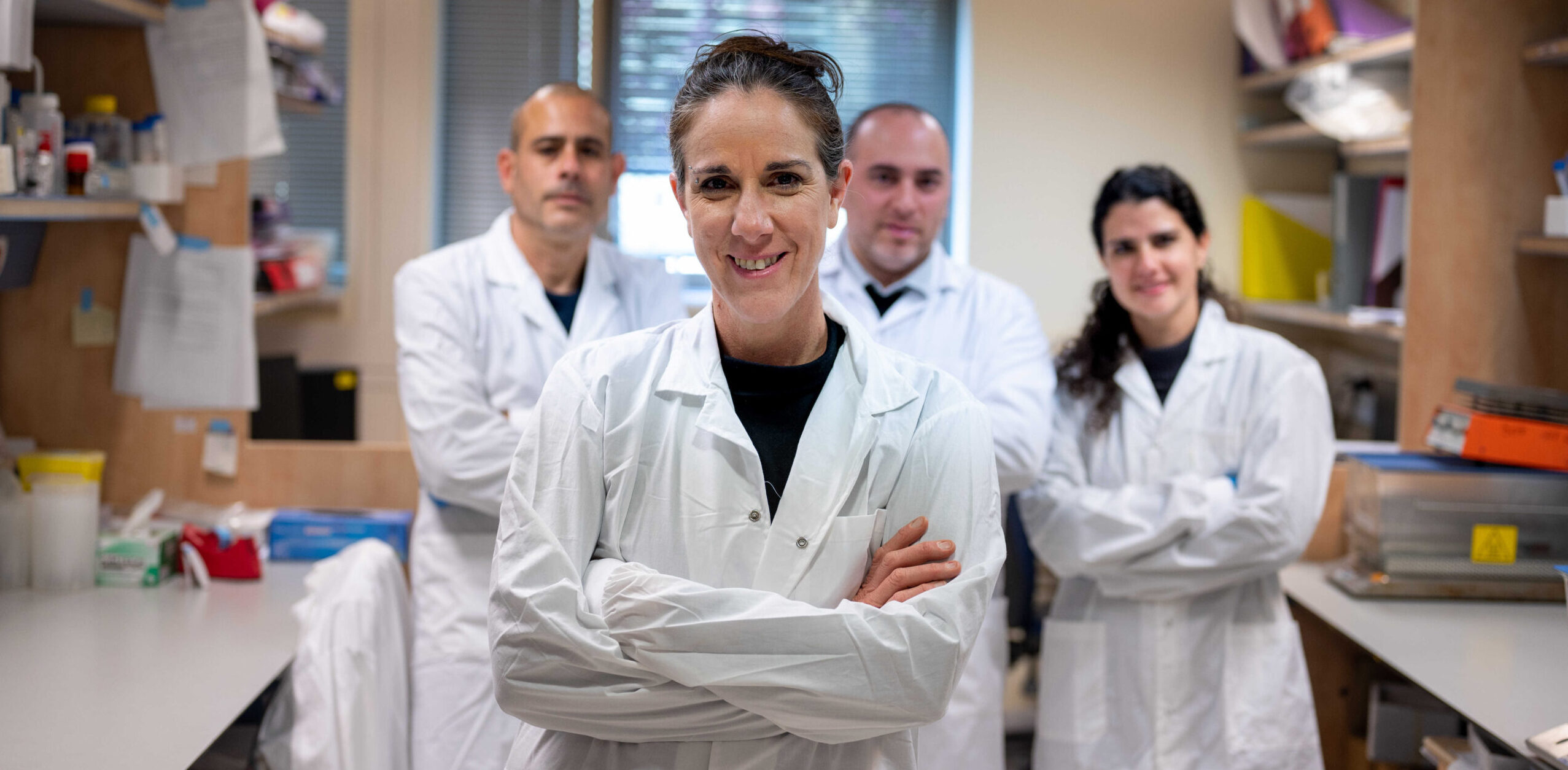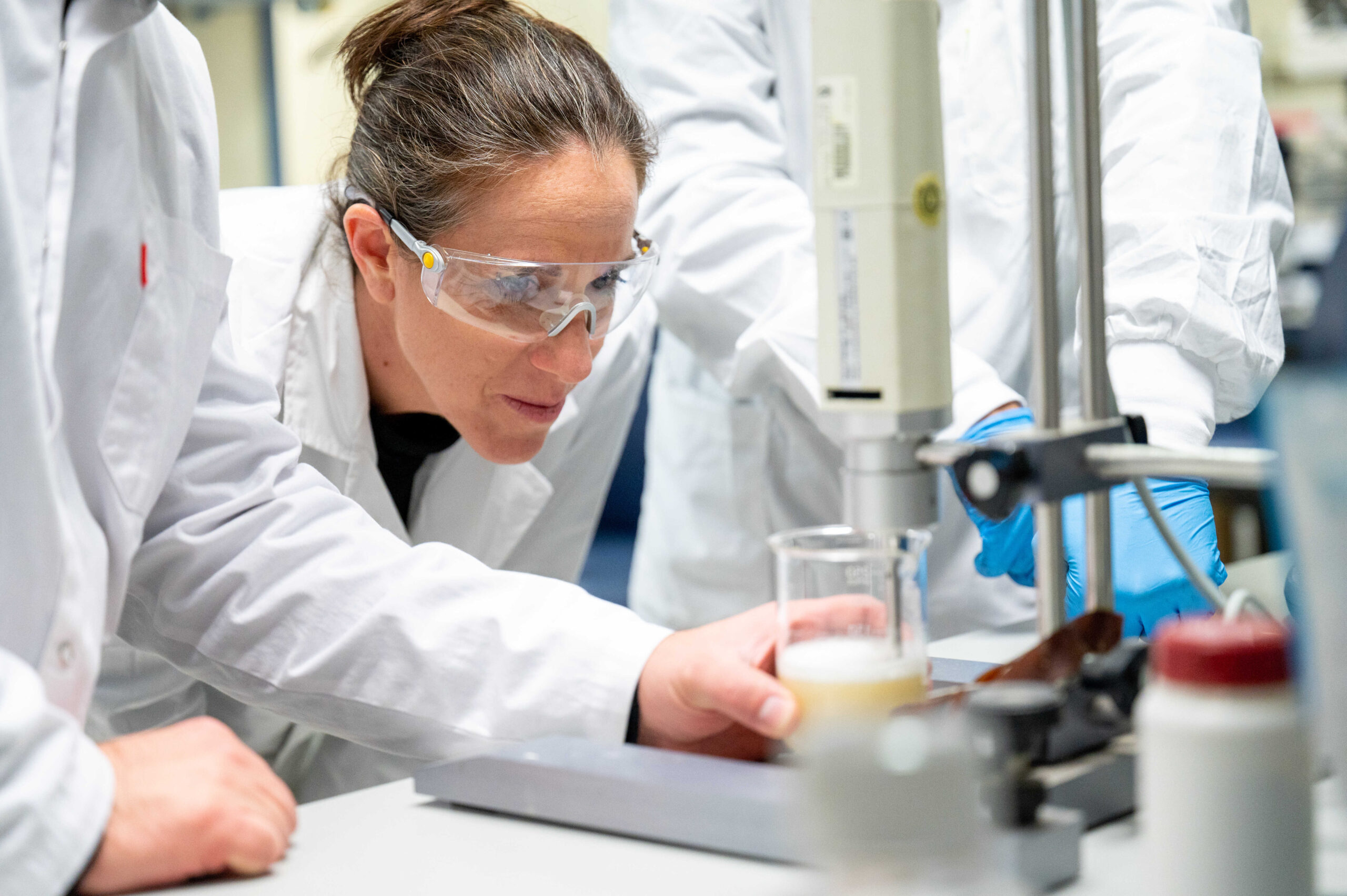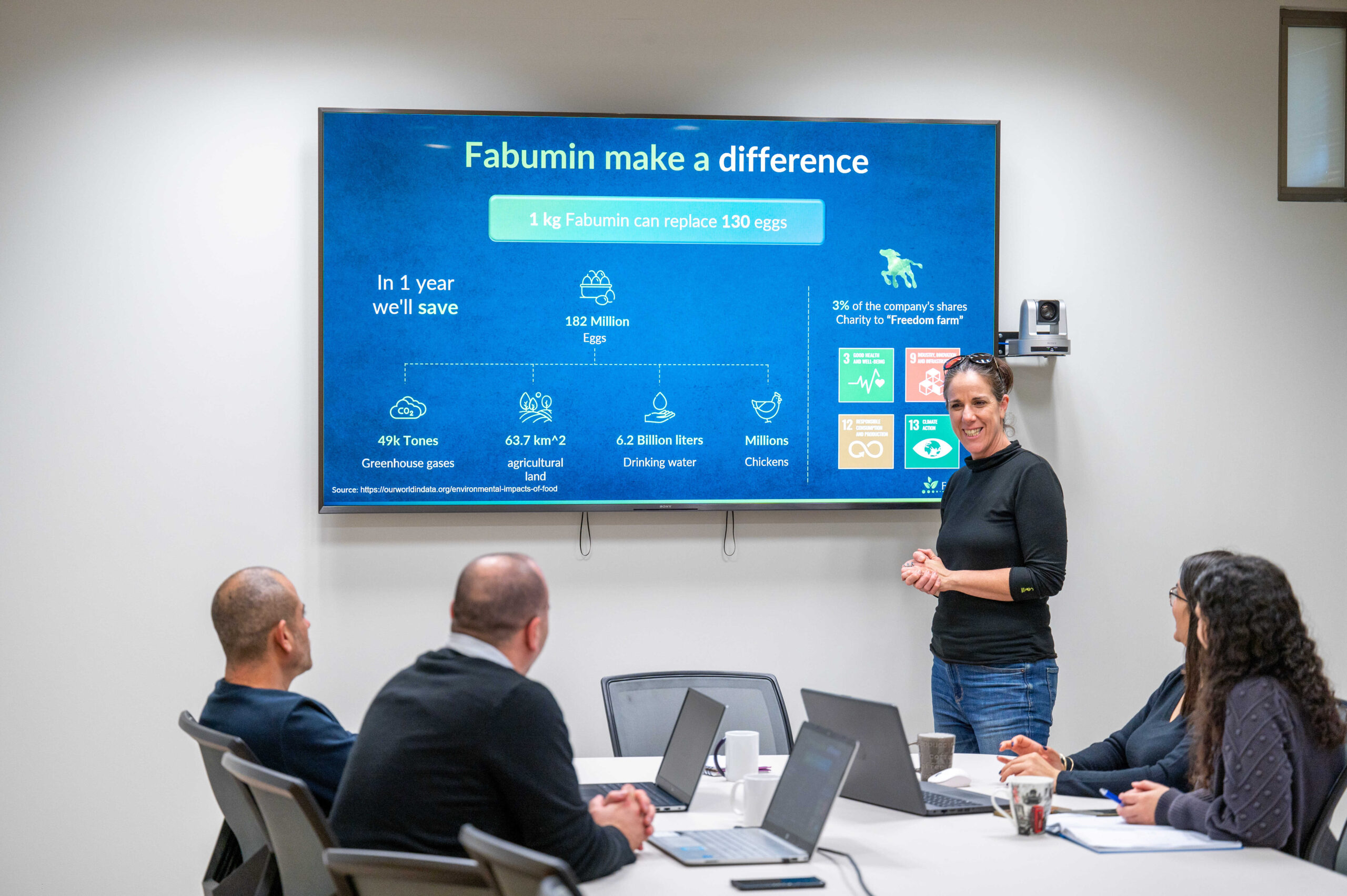Introducing Fabumin and the Idea Behind It
Q: Could you introduce yourself and your startup, Fabumin?
A: My name is Adi, CEO and co-founder of Fabumin. We focus on handling the waste of the legume industry, specifically a substance called aquafaba. The legume industry generates a significant amount of wastewater, which is often discarded. Aquafaba, derived from this wastewater, has been identified as a valuable raw material capable of replacing eggs in the food industry due to its binding, emulsifying, and foaming properties. Our product is a powder that mimics these functionalities, offering an alternative to eggs. This not only addresses the waste issue in the legume industry but also mitigates the environmental impact of the egg industry. Our goal is to reduce reliance on eggs, lessen environmental damage and liberate chickens from the food chain.
Q: What inspired the idea behind Fabumin?
A: This venture started from our previous experience. My business partner, who shares my name, and I founded a company called Human Nature about a decade ago, where we developed plant-based cheese. We recognized the need for a quality egg replacement and knew about aquafaba. Initially, we tried using it in liquid form, but it posed challenges like a short lifespan and storage issues. Unable to find powdered aquafaba, we began our journey to create it, leading to the birth of Fabumin. After three years of R&D, we established our company and developed a unique technology. We place our technology onsite at legume factories, where we process the cooking water from legumes, evaporating and then cooling it for reuse. This approach not only saves waste treatment costs but also reduces the water bills of these factories by up to 80%, achieving a circular economy.
Choosing Plug and Play
Q: Why did you choose the Plug and Play accelerator for Fabumin?
A: I was drawn to Plug and Play because of their renowned expertise in our industry. I had heard a lot about them and read extensively, recognizing it as a potentially transformative experience for both myself and Fabumin. Their reputation suggested an opportunity to learn from top professionals in the food industry, akin to an Ivy League education in this field. The experience was indeed astonishing, offering invaluable learning opportunities. Additionally, I was assigned two exceptional mentors. They provided clear guidance, assisting me in refining my pitch deck and approach to investors. It was a remarkable experience.
Q: Can you recall the application process for Plug and Play?
A: The specifics of the application process are a bit hazy now, but I remember it being fairly straightforward. It wasn’t particularly challenging; I had the necessary information and felt confident in my application. Fortunately, we were accepted into the program, which was a great opportunity for us. As for interviews being part of the application, I don’t think there were any.
Daily Life and Learning at Plug and Play
Q: Once accepted into Plug and Play, what was a typical day like for you? Could you describe the program’s structure?
A: A typical day in the Plug and Play program involved Zoom lectures, as I participated remotely from a different geographical location. My sessions were usually in the evening, which was ideal for me to attend with a clear mind after my day job. The agenda was sent a week in advance, allowing me to prepare for the upcoming lectures. The content was specially tailored to the food industry, which was perfect for me as I needed to focus on understanding the key players and opportunities in my specific industry.
Q: How involved were the mentors and program leads with the participants?
A: Throughout most of the program, I didn’t work directly with the mentors; it was only towards the end that I had a few sessions with them. One mentor focused on refining my pitch and ensuring my messaging was precise. Another mentor, who was a well-known investor, introduced me to some investors and provided invaluable insights from an investor’s perspective, guiding me on how to effectively approach them.
Q: Looking back, what aspect of the program do you feel was most beneficial?
A: The interactive nature of the lectures was incredibly beneficial. We were encouraged to bring our own cases to the sessions, allowing us to apply what we were learning directly to our company. This hands-on approach was not just theoretical; it involved real-time interaction and feedback from industry experts, not just professors. It was almost like receiving a private lesson tailored to our specific business needs. Additionally, learning from the questions and experiences of my peers was invaluable, as I could apply their insights to my own company.
Challenges in the Accelerator
Q: What challenges did you face during the Plug and Play accelerator, and how did you manage them?
A: The primary challenge I encountered was the varying levels of experience among the participating companies. While we all focused on the food industry, there was a noticeable gap in experience. This disparity made me question whether there was as much to learn from each other as initially thought. Despite this, the program’s structure — including the timing, topics, and lectures — was excellent. However, a significant drawback for me was the lack of in-person interaction due to the remote nature of the program. Although the online format was generally effective, I missed the personal connection that comes with face-to-face meetings. Meeting in person, even once or twice during the program, would have enhanced the experience. I understand the logistical and cost challenges, especially as the program was based in the U.S., but the personal connection element was something I felt was missing.
Fabumin’s Progress and Future Goals
Q: Can you share the current status of Fabumin following your participation in the accelerator? What have you accomplished?
A: Post-accelerator, the most significant achievements for Fabumin have been gaining knowledge and building confidence in both myself and the business. While I didn’t secure investment or experience any groundbreaking developments, the learning and understanding gained were substantial. I had hoped to expand my network more, which I feel was a missed opportunity. The program did provide good knowledge, but in terms of expanding my network or gaining media exposure, there was less impact than I had hoped.
Q: Did Fabumin undergo any changes or receive funding through the program?
A: No, we didn’t receive any funding, and the company’s trajectory hasn’t dramatically changed since completing the program. I had aspirations for more exposure, both in the media and within the network, which didn’t materialize as expected.
Q: What are the next milestones for Fabumin, and do you feel the accelerator has equipped you for these?
A: Our next major goal is to upscale our processes and build a better site for commercialization. While the accelerator provided me with valuable insights into company management, creativity, pitch deck construction, and investor relations, it hasn’t directly influenced our plans for scaling up. The program was beneficial in certain aspects, but in terms of our immediate milestones, its impact has been limited.
The ultimate vision for Fabumin is to achieve a significant exit. We believe in our product and its potential in the market. Although there’s still some uncertainty about the future, we aim to reach a point where Fabumin realizes its full potential and achieves a successful exit.
Founder’s Advice
Q: What advice would you give to someone considering applying to Plug and Play or a similar accelerator program?
A: My advice is simple: apply. If you’re seeking to gain knowledge, learn from experts, and grow alongside peers, an accelerator like Plug and Play is an invaluable opportunity. My own experience there led to significant personal and professional growth. I evolved not just as a CEO, but also as a person. The chance to learn in such an environment is immensely beneficial, so I highly recommend applying to those who are looking to advance in their field.



